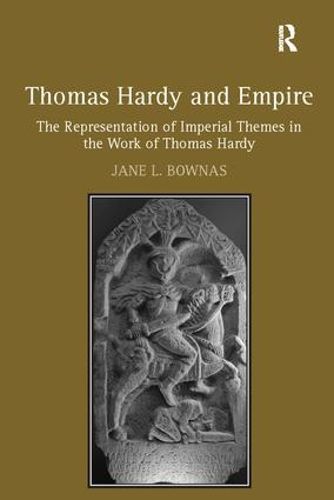Readings Newsletter
Become a Readings Member to make your shopping experience even easier.
Sign in or sign up for free!
You’re not far away from qualifying for FREE standard shipping within Australia
You’ve qualified for FREE standard shipping within Australia
The cart is loading…






Unlike many of his contemporaries, Thomas Hardy is not generally recognized as an imperial writer, even though he wrote during a period of major expansion of the British Empire and in spite of the many allusions to the Roman Empire and Napoleonic Wars in his writing. Jane L. Bownas examines the context of these references, proposing that Hardy was a writer who not only posed a challenge to the whole of established society, but one whose writings bring into question the very notion of empire. Bownas argues that Hardy takes up ideas of the primitive and civilized that were central to Western thought in the nineteenth century, contesting this opposition and highlighting the effect outsiders have on so-called ‘primitive’ communities. In her discussion of the oppressions of imperialism, she analyzes the debate surrounding the use of gender as an articulated category, together with race and class, and shows how, in exposing the power structures operating within Britain, Hardy produces a critique of all forms of ideological oppression.
$9.00 standard shipping within Australia
FREE standard shipping within Australia for orders over $100.00
Express & International shipping calculated at checkout
Unlike many of his contemporaries, Thomas Hardy is not generally recognized as an imperial writer, even though he wrote during a period of major expansion of the British Empire and in spite of the many allusions to the Roman Empire and Napoleonic Wars in his writing. Jane L. Bownas examines the context of these references, proposing that Hardy was a writer who not only posed a challenge to the whole of established society, but one whose writings bring into question the very notion of empire. Bownas argues that Hardy takes up ideas of the primitive and civilized that were central to Western thought in the nineteenth century, contesting this opposition and highlighting the effect outsiders have on so-called ‘primitive’ communities. In her discussion of the oppressions of imperialism, she analyzes the debate surrounding the use of gender as an articulated category, together with race and class, and shows how, in exposing the power structures operating within Britain, Hardy produces a critique of all forms of ideological oppression.